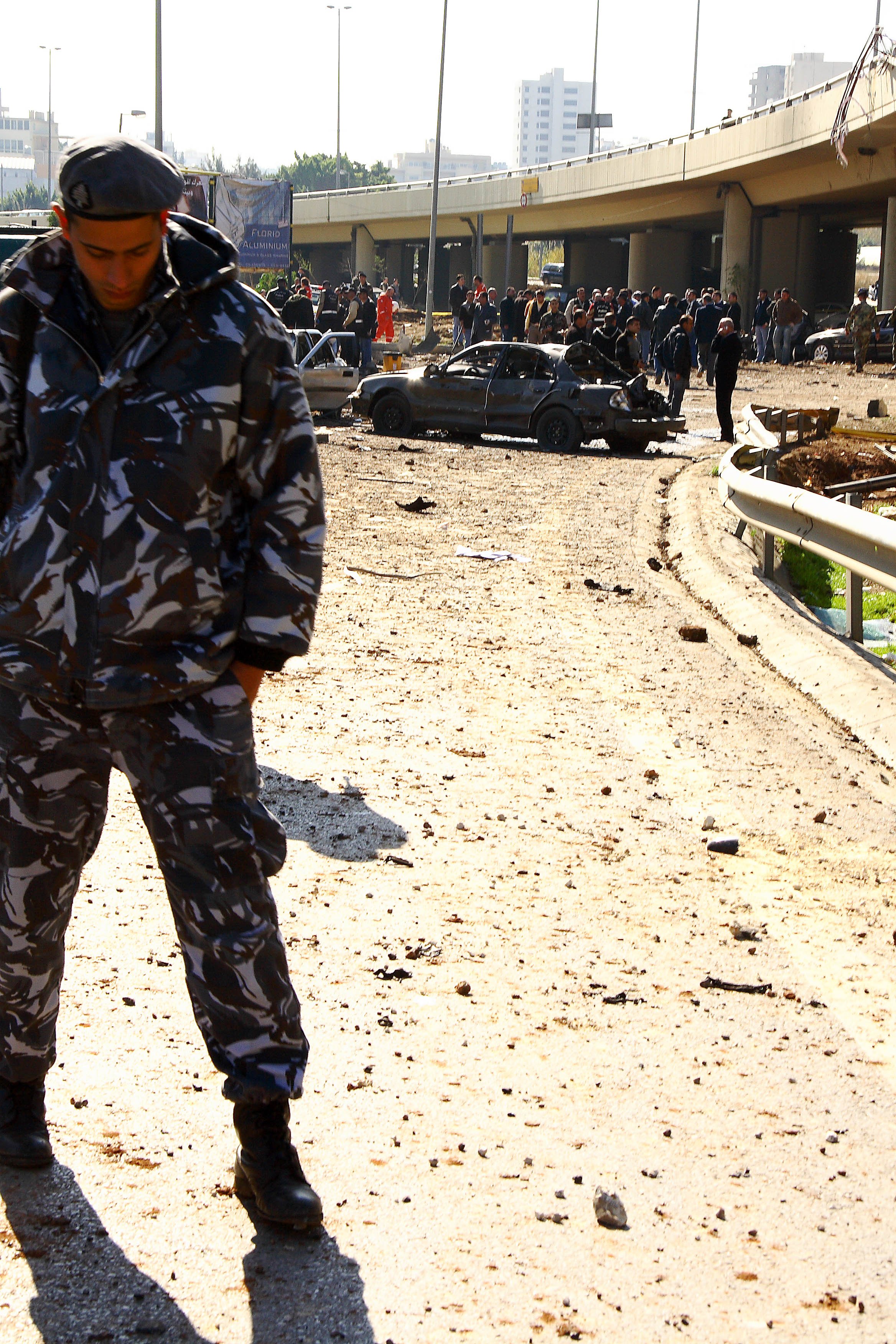Lebanon’s emergency and medical services are being stretched as they respond to the increasing incidents of political violence in the politically deadlocked country.
A massive car bomb explosion at 10am on 25 January underneath a busy highway leading into east Beirut killed a senior police officer and at least six others, injuring at least 30 people.
The explosion - captured on the cameras of nearby Mount Lebanon Hospital - engulfed a nearby car park and the highway overpass in flame, hurling dismembered bodies into the air and sending huge shards of metal flying into passers-by.
Dr Nazih Gharios, director of the Mount Lebanon Hospital, where over a dozen of the casualties were taken, told IRIN such attacks put a severe strain on his hospital’s resources.
“We are very capable and ready for emergencies. The problem we face is when in 15 minutes we have 15-20 injured people,” he said.
Three patients were severely wounded, requiring emergency surgery for shrapnel in the abdomen; a head injury; and two broken legs.
Healthcare insurance
Lebanon’s healthcare system is privatised, meaning citizens are required to have private healthcare insurance. For the many who cannot afford such insurance, the state is meant to cover their expenses, but rarely pays for expensive operations costing many thousands of dollars.
In the case of attacks such as the one on 25 January citizens in need of medical attention are covered under a fund held by the Ministry of Health.
But, said Gharios, the state rarely pays back hospitals like his the full amount they are owed for providing treatment.
“The government only pays up around 30 percent of the time,” he said.
 Photo: Hugh Macleod/IRIN  |
| Tony Eid looks over the scene of the 25 January explosion in which his brother-in-law died. Red Cross volunteers were on the scene within minutes |
First responders
The privatisation of healthcare extends into the emergency services. While the army and civil defence forces were on the scene of the 25 January attack within 10 minutes, it was the volunteer force of the Lebanese Red Cross (LRC) which took the lead in dealing with casualties.
The LRC dispatched 11 ambulances and 50 first-aiders to the site, transporting the dead and severely injured to hospital and providing first aid at the scene.
“Our teams are well trained to respond to emergency situations,” said Khaled Ayoubi, LRC spokesperson.
The LRC has 6,000 volunteers nationwide and four stations responding to emergencies in Beirut. The first aiders regularly put their lives on the line during the 2006 July War and most recently during last summer’s conflict in the northern Nahr al-Bared Palestinian camp.
But Rula Zaha Gharios, services manager at the Mount Lebanon Hospital, said the government should take a more leading role in emergency service provision.
“The quality of healthcare is excellent but we do not have well-developed emergency services,” she said. “The scene after attacks is always chaotic and the ambulances struggle to evacuate the victims. The government should have a committee responsible for emergencies.”
Following the assassination of member of parliament Antoine Ghanem last September, in which many injured were treated at the Mount Lebanon Hospital, the hospital put in place a new emergency response plan, including requiring all staff members to come into work immediately rather than wait for a phone call because mobile phone networks regularly jam following such attacks.
hm/ar/cb
This article was produced by IRIN News while it was part of the United Nations Office for the Coordination of Humanitarian Affairs. Please send queries on copyright or liability to the UN. For more information: https://shop.un.org/rights-permissions




